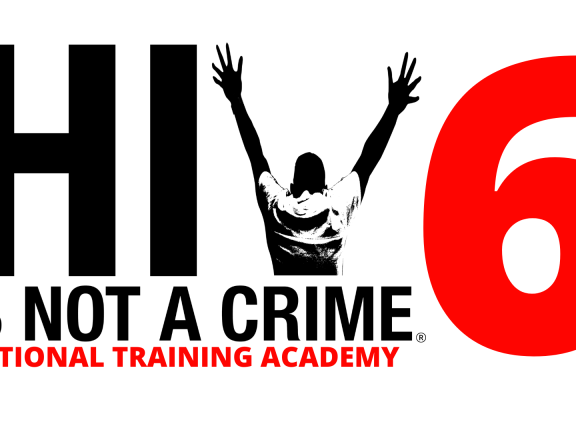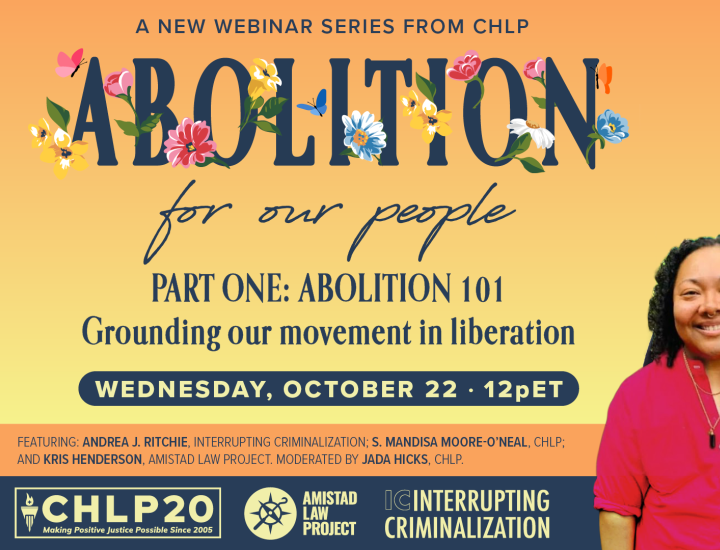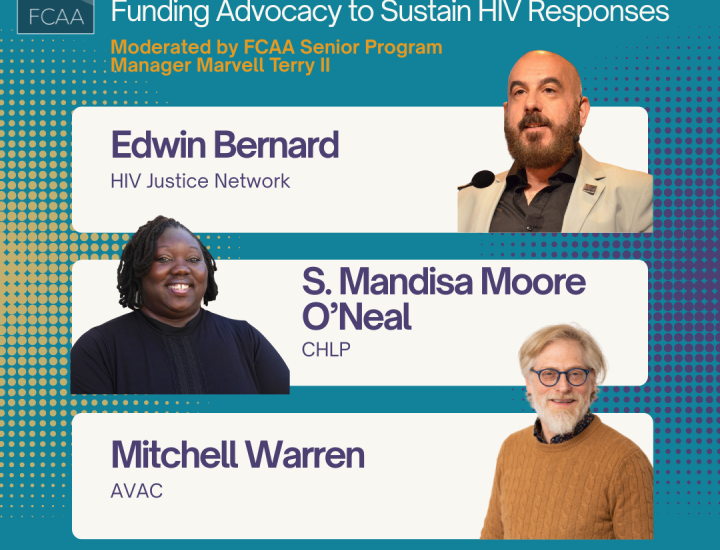HINAC 6: HIV is Not a Crime National Training Academy

CHLP will be attending and presenting at the HIV Is Not a Crime National Training Academy (HINAC) at North Carolina State University. HINAC is a biennial gathering that brings together people living with HIV (PLHIV), HIV policy leaders, and other stakeholders, primarily from the U.S. The event focuses on educating and empowering advocates while centering PLHIV leadership to combat HIV criminalization, mass incarceration, racism, and social injustice.
Kytara Epps, CHLP Public Health and Advocacy Strategist
Call and Response: The Role of Faith Leaders in HIV Criminalization and Stigma
June 2, 2025: 9:30 – 11:00 AM
This panel will examine the landscape of HIV criminal laws and learn how these laws undermine public health efforts to end the HIV epidemic. Specifically, we will discuss how faith leaders hold significant influence and can either perpetuate harmful stereotypes or serve as powerful allies in combating stigma and advocating for compassionate and evidence-based approaches to HIV. Their role can be pivotal in shaping attitudes and beliefs.
Presenting with: Myra Franks, SME, Board Member, Legal Services of Alabama; Stacy Smallwood, Executive Director of Faith Compass Center, Faith Compass Center, Wake Forest University School of Divinity; Waheedah Shabazz-El, Director of Community Engagement, The Reunion Project; and Jovon McPerry, Pastor, A Place Called Hope Church
Kae Greenberg, Staff Attorney
People Living & Aging With HIV: Collateral Consequences of Criminalization
June 2, 2025: 9:30 – 11:00 AM
In 2030, 70% of People Living with HIV (PLHIV) will be over the age of 50. Over 30 states still have laws on the books criminalizing PLHIV, subjecting them to draconian penalties for conduct solely due to their HIV status. By themselves, each of these statistics provides a snapshot of the contemporaneous epidemics of criminalization and HIV in the U.S. Taken together, they imply an issue about which few are cognizant: that the population of People Living and Aging with HIV (PLAHIV) with a criminal record is rapidly expanding. In a country that already has a woefully inadequate social services safety net for its aging population generally, it is of utmost importance to bring attention to, and discuss options and alternatives for, PLAHIV with a criminal record.
Presenting with: Malcolm Reid, CHLP Aging Consultant; and Kerry Thomas, Decriminalization Policy Strategist, Sero Project
Sean McCormick, Staff Attorney
OUTMemphis v. Lee: a 360-degree look at a new approach to HIV Decriminalization
June 2, 2025: 9:30 – 11:00 AM
This panel will take a 360-degree look at innovative advocacy to address HIV criminalization through round-robin interviews of an impacted community activist, lawyers, and advocates collaborating across diverse strategies. Panelists will use Tennessee’s Aggravated Prostitution law as a case study to highlight (1) the experience of being a person living with HIV named as a plaintiff in the first law suit ever to use the Americans with Disabilities Act to challenge an HIV criminal law as discriminatory and irrational, including weighing the risks of doing public-facing work while living with HIV; (2) the unique opportunities and challenges presented when using a new legal strategy, including unanticipated defenses and the shifting federal landscape; (3) how legislative and administrative advocacy work in tandem with litigation to create change; and (4) the discriminatory impact of HIV criminal laws on Black cis- and transgender women.
Presenting with: Michelle Anderson; Alexis Agathocleous, Deputy Director, ACLU Racial Justice Program
Jada Hicks, Senior PJP Attorney
HIV Decriminalization in the South: Modernizing North Carolina’s HIV Control Measures
June 2, 2025: 11:00 AM
In 2017, the NC AIDS Action Network partnered with the NC DHHS to reform North Carolina’s communicable disease control measures in the state’s Administrative Code. While these changes represented progress, it remains far from ideal—continuing to criminalize PLHIV based on outdated science and perpetuating stigma. Now, advocates are mobilizing again to close the gaps and ensure that the law aligns with modern public health, human rights, and best practices in HIV policy. This interactive session will provide an overview of NC’s current law, detail the successes of reform efforts, explore the remaining challenges, and discussion on renewed advocacy efforts. Participants will engage in a hands-on activity, reading the administrative code and identifying areas for improvement. Working in groups, they will draft their own revisions to the law, discuss legal strategies, messaging, and policy solutions. Through guided discussion, attendees will explore how legal language can reinforce or dismantle stigma, strategies for building legislative and community support, and learn how to apply these lessons in their own states.
Presenting with: Alicia Diggs, Community Engagement Manager, UNC Center for AIDS Research; Maggie Blunk, Health Advocacy & Communications Manager, Latinos in the South
Jada Hicks, Senior PJP Attorney
HIV criminalization: a public health threat that health departments can address
June 2, 2025: 4:30 PM
While cooperation with law enforcement by health departments has broadened HIV criminalization's reach in some settings, health departments have reduced the harms of HIV criminalization in other settings through education and support of PLHIV and stakeholders and reform of policies that perpetuate racial, LGBTQ+, and gender injustice. Accordingly, this workshop will explore the role of state and local health departments in ending HIV criminalization.
Presenting with: Dori Molozanov, Senior Manager, NASTAD; Ronnie Taylor, Advocacy, Policy, & Partnerships Director, FreeState Justice; and Todd Fuqua (they/them), Founding Artivist, CelebrateUU; Jeffery Edwards-Knight, Executive Committee; Co-chair of Communications and Community Collaborations Committee, National HIV and Aging Advocacy Network (NHAAN)


